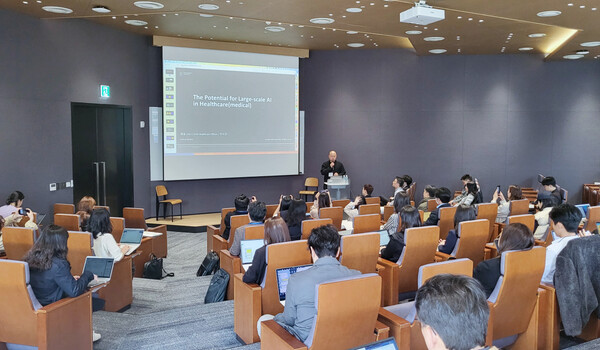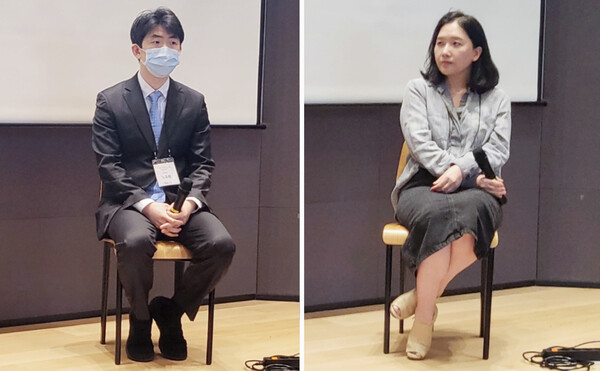
The domestic medical artificial intelligence industry has said, “Without insurance benefits, we cannot survive.”
At a recent workshop, however, digital healthcare companies expressed willingness to “live independently” based on user experience. Participants said they must break away from the time-old debate of which should come first – reimbursement or verification (of usefulness).
"Instead of adhering to evaluation (for reimbursement), we should create a virtuous cycle of data between the industry and users based on independent business models,” said Bae Woong, chief healthcare officer (CHO) of Kakao Brain, at the Digital Healthcare Day” event organized by Kakao Ventures with the theme of artificial intelligence on Wednesday.
He said that the “hyper-scale AI,” which is drawing the attention of Kakao Brain and other digital healthcare companies, grows based on data and feedback provided by users in real-time. A case in point is ChatGPT. Accordingly, the medical AI industry, also based on hyper-scale AI, must secure data and feedback provided by medical fields to boost its product power.
Bae added that digital healthcare firms can generate revenue without resorting to the health insurance system if only they can induce users’ participation in preemptive business models, upgrade medical AI models and “meet customer expectations and confidence.” He cited as an example Nuance, a Microsoft affiliate that has developed a voice-recognition electric medical record (MER) creation solution and records annual sales of more than 1 trillion won ($746 million) thanks to its product power and support from clinical fields.
“The fundamental reason we started a business is not to receive reimbursement. We started to solve problems we faced in the field. Securing customers’ usability is a more fundamental element,” he said. “Only when people use products frequently can the data and feedback accumulate, creating a virtuous cycle. And when this structure reaches a meaningful stage, we can discuss insurance benefits.”
He forecast that the industry should have a period to upgrade AO models by accumulating data and feedback at least in the next five years, predicting it would take an additional 10 years to establish reimbursement for it.
“Sometimes, companies are sure their products would help target clients, but customers do not feel the need (to use them). If the businesses provide motivation and verify usability, customers will use them (regardless of financial assistance). It will take some time for this “habituation of use” to occur,” Bae said. “At stake is how to make customers feel AI’s usefulness. We need to establish customer-centered business models and move closer to users.”
Medical AI companies, which attended the event as partners of Kakao Venture, showed confidence, saying, “We can do it.” As these firms developed products based on the needs of the medical fields, they were confident in realizing the two goals of sales and “customer-centeredness.”

Prevenotics CEO Chang Soo-young vowed to make customers choose its products with solid product power. Chang also said the company would realize the “patient-centered principle” by presenting solutions patients want as customers. Prevenotics produces endoscopic diagnosis assistance AI solutions to diagnose and prevent gastric cancer in all stages.
"We can prove that using our products leads to better results and introduce new reimbursements beyond the current one. We can enter the market by making patients directly pay for our products without insurance benefits,” she said.
Chang stressed that it is essential to make products patients use with satisfaction because doctors use products patients want, and products selected by doctors receive investment.
“Products related to pre-cancer stages receiving reimbursements in the United States have proved more cost-effective than existing ones. Patients preferred them, and doctors proved they could produce bigger results,” Chang said. “We also can do it. All are verifiable areas. We can advance foreign markets and enter the domestic market.”
CEO Roh Doo-hyeon of Connecteve, which develops knee joint surgery- designing AI and surgical robots, said, “We have already drawn positive responses from beta tests at university hospitals. We plan to enter the market targeting hospitals and related medical device companies.”
Expressing confidence that doctors will choose his company’s products as they meet various demands from clinical demands and respond to emergencies more quickly using AI, Roh said, “We will secure AI’s accuracy equal to doctors’ and apply it to medical devices and software to prepare models that can receive reimbursement based on such performances.”

